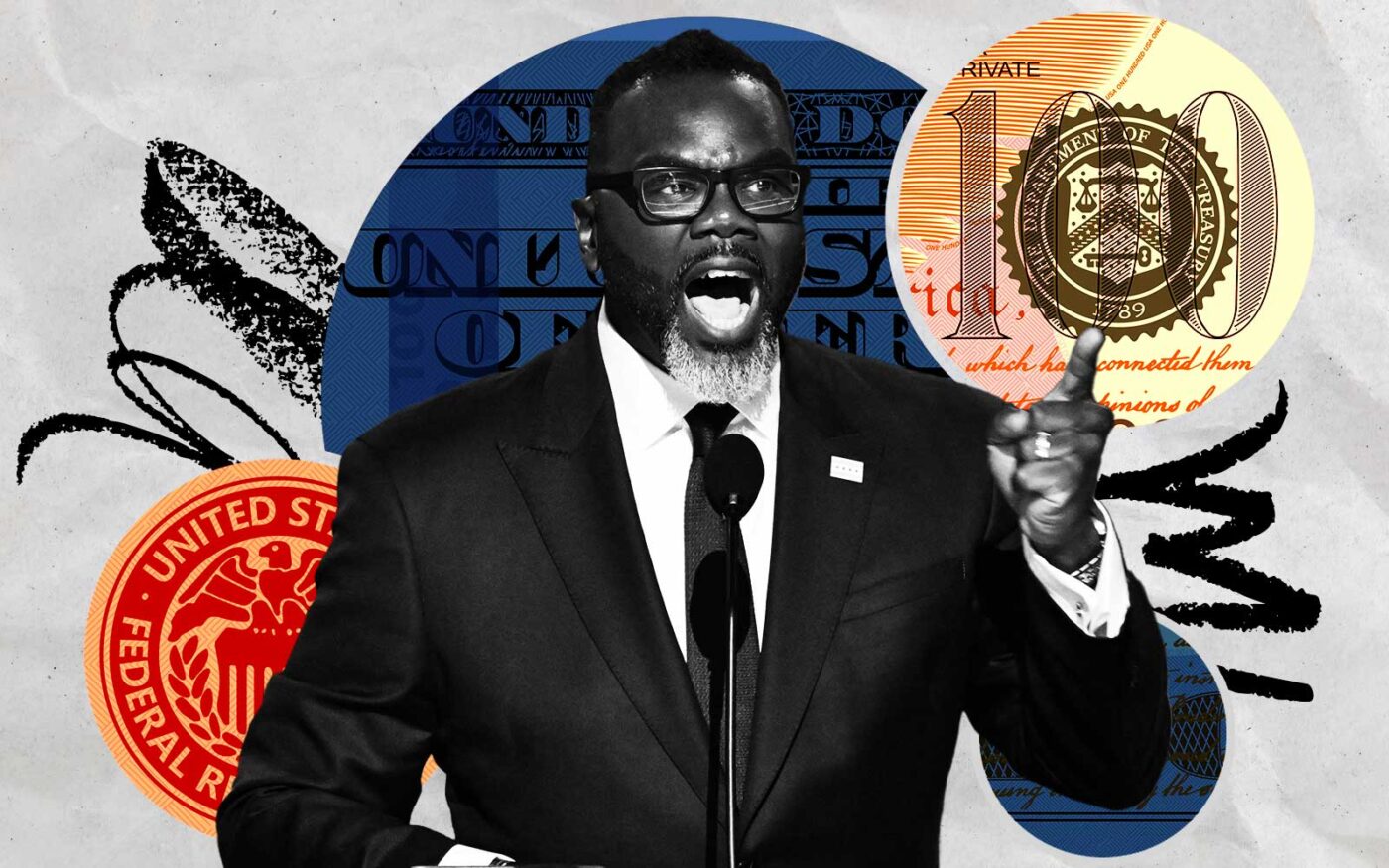Mayor Brandon Johnson’s 2025 budget plan narrowly passed the City Council by a 27-23 vote, avoiding a government shutdown after a turbulent cycle.
The $17.1 billion spending plan, which was the fourth version introduced to address the city’s $982 million budget deficit, eliminated a contentious $68.5 million property tax hike but includes $165.5 million in other taxes, fees and fines, the Chicago Sun Times reported.
The budget relies on $40 million by restructuring debt on the Michael Reese Hospital site in Bronzeville, and a mix of other tax and fee hikes, including higher taxes on streaming services, parking, plastic bags and ride-share services.
The budget avoids cuts to essential services and focuses on progressive priorities like youth employment, community safety, mental health and affordable housing, but Johnson’s handling of the process drew sharp criticism.
Progressive Caucus members, typically Johnson’s staunch allies, openly expressed frustration with the mayor, following previous proposals to raise property taxes. Alderman Maria Hadden and Alderman Andre Vasquez criticized Johnson’s leadership, citing a lack of transparency and collaboration, which eroded trust in the administration and government.
Veteran Alderman Emma Mitts urged Johnson to rebuild relationships, warning that divisiveness would hinder progress.
Johnson’s first budget proposal called for a $300 million property tax hike, which would’ve broken his campaign promise. Facing unanimous Council opposition, he walked it back but still attempted a $68.5 million increase, which also failed.
Other measures, such as a 34 percent liquor tax increase and cuts to Chicago Police Department positions, were scrapped after significant pushback.
To secure the necessary votes, Johnson ultimately dropped the property tax hike.
The revised budget also includes new taxes on streaming services, cloud computing, parking and congestion, as well as increased fees for speed enforcement, residential permits and events requiring police services.
Critics argue the budget relies on short-term fixes rather than addressing Chicago’s long-term financial issues. Civic Federation President Joe Ferguson called it a “revenue and one-time solutions budget,” warning it fails to address structural deficits. He noted that credit-rating agencies will look for sustainable reforms rather than temporary measures.
— Andrew Terrell
Read more



